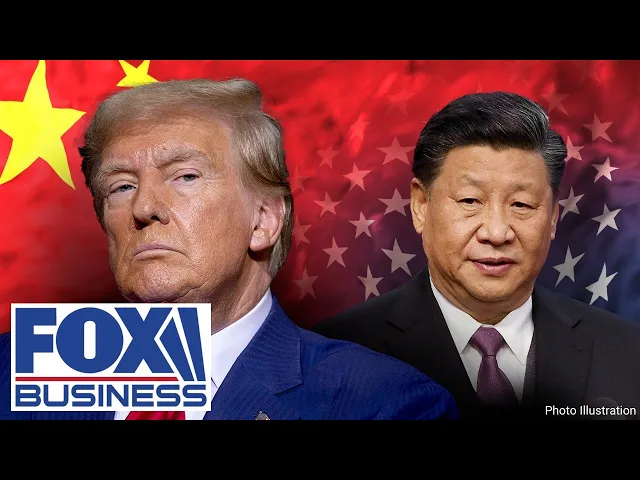Trump to announce game-changing investment strategy to win AI war against China

Trump's high-stakes AI investment gamble
The tech landscape is about to undergo a seismic shift if former President Donald Trump wins the upcoming election. During a recent interview with Bloomberg, Trump revealed his plan to dramatically accelerate America's AI capabilities through unprecedented government investment. This bold strategy aims to counter China's growing dominance in the technology race that many experts believe will define global power for decades to come.
Key insights from Trump's AI strategy:
- Trump plans to authorize "billions and billions" in government funding specifically targeted at AI development, marking a major shift from his first-term economic policies
- The strategy appears inspired by the Manhattan Project's focused approach, which successfully developed nuclear weapons through massive government investment and coordination
- Trump views the AI race primarily through a national security lens, positioning technological supremacy as essential for maintaining America's global leadership
- The proposal represents a stark departure from traditional Republican small-government philosophy, suggesting the gravity with which Trump views the AI competition with China
Why this matters more than you might think
The most compelling aspect of Trump's proposal isn't just the dollar figure, but the philosophical shift it represents. For a Republican candidate traditionally aligned with free-market principles to advocate for such massive government intervention signals a profound recognition of how the technology landscape has changed.
This pivot reflects a growing bipartisan consensus that America's technological edge—particularly in AI—constitutes a vital national security interest that cannot be left entirely to market forces. China's state-directed technology investments have already yielded impressive results, particularly in areas like facial recognition, smart city infrastructure, and manufacturing automation. Their approach combines government funding, regulatory advantages, and tight coordination between public and private sectors.
Trump's apparent willingness to adapt his economic philosophy to meet this challenge suggests we may be entering a new era of industrial policy in the United States, one where strategic technologies receive direct government support in ways not seen since the Space Race.
Beyond the headlines: What Trump's plan means for the tech ecosystem
What the interview doesn't address is how such investments would affect the existing AI ecosystem. The U.S. currently leads in fundamental AI research and top-tier talent, with companies like Google, Microsoft, and OpenAI driving innovation. However, China excels in application deployment, data collection, and hardware manufacturing.
Massive government funding could dramatically accelerate U.S. capabilities, but questions remain about implementation.
Recent Videos
How To Earn MONEY With Images (No Bullsh*t)
Smart earnings from your image collection In today's digital economy, passive income streams have become increasingly accessible to creators with various skill sets. A recent YouTube video cuts through the hype to explore legitimate ways photographers, designers, and even casual smartphone users can monetize their image collections. The strategies outlined don't rely on unrealistic promises or complicated schemes—instead, they focus on established marketplaces with proven revenue potential for image creators. Key Points Stock photography platforms like Shutterstock, Adobe Stock, and Getty Images remain viable income sources when you understand their specific requirements and optimize your submissions accordingly. Specialized marketplaces focusing...
Oct 3, 2025New SHAPE SHIFTING AI Robot Is Freaking People Out
Liquid robots will change everything In the quiet labs of Carnegie Mellon University, scientists have created something that feels plucked from science fiction—a magnetic slime robot that can transform between liquid and solid states, slipping through tight spaces before reassembling on the other side. This technology, showcased in a recent YouTube video, represents a significant leap beyond traditional robotics into a realm where machines mimic not just animal movements, but their fundamental physical properties. While the internet might be buzzing with dystopian concerns about "shape-shifting terminators," the reality offers far more promising applications that could revolutionize medicine, rescue operations, and...
Oct 3, 2025How To Do Homeless AI Tiktok Trend (Tiktok Homeless AI Tutorial)
AI homeless trend raises ethical concerns In an era where social media trends evolve faster than we can comprehend them, TikTok's "homeless AI" trend has sparked both creative engagement and serious ethical questions. The trend, which involves using AI to transform ordinary photos into images depicting homelessness, has rapidly gained traction across the platform, with creators eagerly jumping on board to showcase their digital transformations. While the technical process is relatively straightforward, the implications of digitally "becoming homeless" for entertainment deserve careful consideration. The video tutorial provides a step-by-step guide on creating these AI-generated images, explaining how users can transform...
